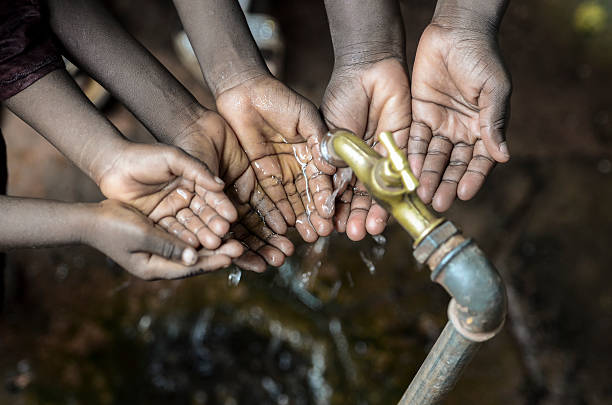
Access to clean water is a fundamental human right, yet millions of people across Africa still struggle to meet this basic necessity. For children living with disabilities in developing nations, this challenge is even more pressing. World Forgotten Children Foundation (WFCF) recognizes the importance of addressing not only medical needs but also broader issues like water scarcity, which directly impacts the health and well-being of vulnerable populations.
Causes of Water Scarcity in Africa
Water scarcity in Africa is driven by multiple factors. Climate change is a significant contributor, as shifting weather patterns have reduced rainfall in many regions, drying up vital water sources like rivers and lakes (Greenpeace, 2023). Rapid population growth further strains existing water infrastructure, with demand far outstripping supply. Additionally, many communities face poor management of water resources, outdated infrastructure, and underfunded projects that hinder the distribution of clean water (African Development Bank, 2023; World Health Organization, n.d.). Political instability and conflicts in some areas also disrupt access, leaving entire regions without reliable water sources (UNICEF, 2022; Blood:Water, n.d.).
The Impact of Water Scarcity
The consequences of water scarcity are devastating. Children and young adults, especially those with disabilities, face an increased risk of waterborne diseases such as cholera and diarrhea. These conditions are often preventable with clean water, but without it, children’s health and development are severely impacted (Healing Waters International, n.d.). Lack of access to water also disproportionately affects women and girls, who are often tasked with collecting water from distant sources, a time-consuming task that hinders their ability to attend school or work (Microfinancing Partners in Africa, n.d.).
Moreover, without access to clean water, entire communities remain trapped in a cycle of poverty. Water scarcity limits agricultural productivity, leading to food shortages and malnutrition (Earth.Org, 2023; The Water Project, n.d.). Economies suffer as the lack of a reliable water supply hinders industrial and economic growth, leaving communities with few opportunities to break free from poverty (World Bank Group, 2023).
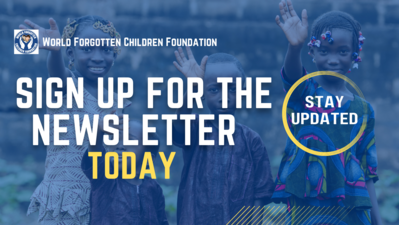
WFCF’s Commitment: Solar-Powered Water System in Africa
To combat the water crisis and improve the lives of underprivileged communities, WFCF is proud to fund projects like the solar-powered water system in Zimba. This project, which provides clean water to the community not just for drinking but also for seasonal vegetable production and small livestock rearing, is powered entirely by solar energy, ensuring a sustainable and environmentally friendly solution to water scarcity. The system brings fresh water to Zimba’s community and surrounding areas, greatly reducing the distance children and caregivers need to travel for clean water (World Forgotten Children Foundation, 2024).
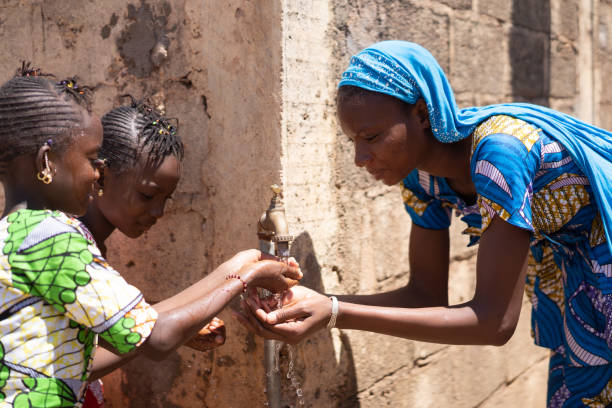
The introduction of this water system not only improves the health and sanitation conditions of the community but also creates a healthier environment that fosters better growth and development. By addressing water scarcity with sustainable technology, WFCF is helping to build self-sufficient communities that can thrive long-term without reliance on external aid. This project exemplifies WFCF's commitment to improving the quality of life for children living with disabilities in impoverished regions while promoting sustainable development.
How People Can Help
Addressing water scarcity in Africa requires collective effort from both local communities and international organizations. Supporting projects that invest in sustainable water infrastructure is crucial. Organizations like WFCF work with partners to develop wells, boreholes, and water purification systems that provide long-term solutions to communities in need (Water Is Basic, n.d.). Additionally, advocating for policies that prioritize clean water access and supporting local leaders in managing water resources more effectively is essential (World Bank Group, 2024).
Individuals can contribute by donating to initiatives that focus on improving water access in Africa, such as the construction of water systems and the provision of clean water technology (African Development Bank, 2023). Raising awareness about the severity of water scarcity can also help generate more support for these critical projects.
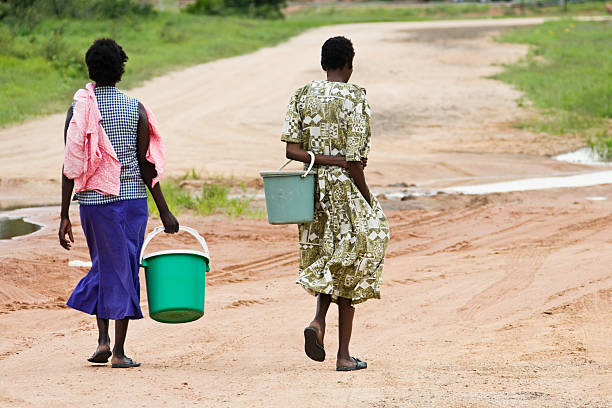
A Brighter, Sustainable Future
At WFCF, we believe that when communities have access to clean water, they are better equipped to thrive. Ensuring that children with disabilities have the care they need to survive also means providing their communities with the resources to sustain life. By focusing on both medical and environmental initiatives, WFCF is working to end the cycle of poverty and improve the quality of life for orphaned children and young adults living with disabilities. Together, we can help create a sustainable future where everyone has access to clean water.
Donate to WFCF
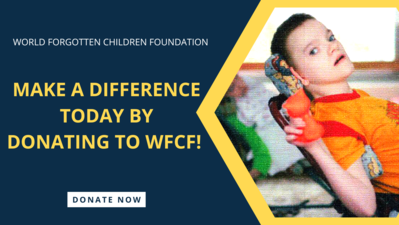
The mission of WFCF is to support projects that promote the health and welfare needs of underprivileged communities and orphaned children with disabilities in developing countries. Donate today.
_____________________________________________________________________________________________________________ References- African Development Bank. (2023, March 22). World Water Day 2023: Accelerating Change, Solving Africa's Water and Sanitation Crises. African Development Bank. https://www.afdb.org/en/news-and-events/world-water-day-2023-accelerating-change-solving-africas-water-and-sanitation-crises-59935
- Blood:Water. (n.d.). What Causes Water Scarcity in Africa? Blood:Water. https://bloodwater.org/what-causes-water-scarcity-in-africa/
- Earth.Org. (2023, March 20). Water scarcity in Africa: What’s happening? Earth.Org. https://earth.org/water-scarcity-in-africa/
- Greenpeace. (2023, March 23). Water woes: 13 undeniable facts about Africa’s water scarcity. Greenpeace. https://www.greenpeace.org/africa/en/blog/55086/water-woes-13-undeniable-facts-about-africas-water-scarcity/
- Healing Waters International. (n.d.). What is Causing Water Scarcity in Africa? Healing Waters International. https://healingwaters.org/what-is-causing-water-scarcity-in-africa/
- Microfinancing Partners in Africa. (n.d.). The importance of access to clean water in Africa: How it impacts health, education, and economic growth. Microfinancing Partners in Africa. https://microfinancingafrica.org/the-importance-of-access-to-clean-water-in-africa-how-it-impacts-health-education-and-economic-growth/
- The Water Project. (n.d.). Poverty and Lack of Water. The Water Project. https://thewaterproject.org/why-water/poverty
- UNICEF. (2022, March 22). Africa to drastically accelerate progress on water, sanitation and hygiene – report. UNICEF. https://www.unicef.org/senegal/en/press-releases/africa-drastically-accelerate-progress-water-sanitation-and-hygiene-report
- Water Is Basic. (n.d.). Women & Water. Water Is Basic. https://www.waterisbasic.org/what-it-looks-like?gad_source=1&gclid=CjwKCAjw8fu1BhBsEiwAwDrsjPNPS98pctPnnBAW9eZfB7iJ4HRWNaGvjh4rkXS70mOqeOMSUtEJVBoCFxoQAvD_BwE
- World Bank Group. (2024, March 22). Celebrating Water Day: Why access to clean water is vital for Africa’s future. World Bank Group. https://blogs.worldbank.org/en/africacan/celebrating-water-day--why-access-to-clean-water-is-vital-for-af
- World Bank Group. (2023, March 27). Closing the access gap to water and sanitation in Eastern and Southern Africa by raising ambition. World Bank Group. https://blogs.worldbank.org/en/water/closing-access-gap-water-and-sanitation-eastern-and-southern-africa-raising-ambition
- World Forgotten Children Foundation. (2021, September 9). Installation of a Solar-Powered Water System in the Bulangzi Garden and Orchard Complex in the Zimba District in Africa. World Forgotten Children Foundation. https://www.worldforgottenchildren.org/project/solar-powered-water-system-zimba/102
- World Health Organization. (n.d.). Water: Sanitation and hygiene. World Health Organization, Regional Office for Africa. https://www.afro.who.int/health-topics/water


